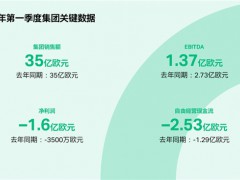全球范圍內(nèi)的原油供應(yīng)正在收緊
伍德麥肯茲今年早些時(shí)候報(bào)告稱,全球上游投資將繼續(xù)增長,但其中很大一部分上游投資增長與通脹有關(guān)
去年的能源危機(jī)可能已經(jīng)顯著緩解,但尚未結(jié)束
據(jù)油價(jià)網(wǎng)2023年4月11日?qǐng)?bào)道,舊的一年的結(jié)束和新的一年的開始通常是一個(gè)充滿預(yù)測(cè)的時(shí)刻,預(yù)測(cè)將影響特定行業(yè)的這一年的趨勢(shì)。石油和天然氣行業(yè)也不例外:去年12月和今年1月充斥著對(duì)新的一年的預(yù)測(cè)、預(yù)言和展望。
到了4月,人們通常會(huì)清楚哪些預(yù)測(cè)是準(zhǔn)確的,哪些是過早的、不準(zhǔn)確的或完全錯(cuò)誤的。以下是今年推動(dòng)全球油氣行業(yè)發(fā)展的5個(gè)明顯的趨勢(shì),至少在今年年底之前,它們可能會(huì)主導(dǎo)全球整個(gè)油氣行業(yè)。
1.供應(yīng)緊張
盡管交易商對(duì)全球經(jīng)濟(jì)狀況相當(dāng)擔(dān)憂,但大多數(shù)投資銀行和能源咨詢公司仍然預(yù)測(cè)2023年油價(jià)將走高,這是有原因的。
這個(gè)原因被稱為供應(yīng),對(duì)看漲價(jià)格預(yù)測(cè)的解釋是,全球范圍內(nèi)原油供應(yīng)正在收緊。由于行業(yè)外因素導(dǎo)致油價(jià)暴跌,歐佩克+最近決定每天再減產(chǎn)116萬桶原油,這是供應(yīng)走向緊張的一個(gè)例子,但不是唯一的一個(gè)例子。
美國頁巖行業(yè)在過去十年經(jīng)歷了真正的繁榮,但現(xiàn)在美國頁巖行業(yè)已經(jīng)轉(zhuǎn)變?yōu)橐粋€(gè)更加節(jié)儉、效率更高的行業(yè)。頁巖繁榮在去年被多次提及,沒有理由相信這些特別報(bào)道是夸大其詞的。
只要價(jià)格合適,美國頁巖油產(chǎn)量將繼續(xù)增長,但不會(huì)如同此前行業(yè)認(rèn)為的那樣快速增長。
2.通脹導(dǎo)致的更高投資
盡管現(xiàn)實(shí)供應(yīng)和人為控制因素都在收緊,但今年的全球石油需求預(yù)計(jì)將高于去年。國際能源署(IEA)預(yù)計(jì),今年全球石油需求將達(dá)到創(chuàng)紀(jì)錄水平,并在今年年底超過供應(yīng)。油氣行業(yè)正在準(zhǔn)備對(duì)此做出回應(yīng)。
伍德麥肯茲今年早些時(shí)候曾報(bào)告稱,全球上游投資將延續(xù)去年開始的反彈勢(shì)頭,今年將達(dá)到大約4700億美元。然而,伍德麥肯茲指出,全球上游投資大約一半的增長將是成本上升的結(jié)果,而不是出于產(chǎn)量增長的更大雄心。
換句話說,無論需求前景如何,政府和環(huán)保激進(jìn)組織都在不斷加大力度,要求減少石油和天然氣產(chǎn)量,因此,石油巨頭及體量較小的行業(yè)參與者都堅(jiān)定地走在降本增效的道路上。
3.專注低碳
正是由于這種日益增長的壓力,石油和天然氣行業(yè)正在轉(zhuǎn)向多元化的低碳能源,包括碳捕獲。美國石油巨頭尤其如此:雪佛龍公司最近宣布了在該領(lǐng)域的增長計(jì)劃,埃克森美孚公司甚至更進(jìn)一步,表示總有一天其低碳業(yè)務(wù)將超過石油和天然氣,成為收入貢獻(xiàn)者。
埃克森美孚公司低碳業(yè)務(wù)部門負(fù)責(zé)人丹·阿曼本月早些時(shí)候向英國《金融時(shí)報(bào)》表示:“為了成功實(shí)現(xiàn)能源轉(zhuǎn)型,必須在經(jīng)濟(jì)上可行,這是我們工作的一個(gè)重要組成部分,也是我們建設(shè)這項(xiàng)業(yè)務(wù)的一部分。”他補(bǔ)充稱,低碳業(yè)務(wù)部門的價(jià)值可能會(huì)增加到數(shù)千億美元,令埃克森美孚公司的傳統(tǒng)業(yè)務(wù)相形見絀。
在歐洲,石油巨頭仍專注于風(fēng)能、太陽能、氫氣、電動(dòng)汽車充電以及其他他們多年來一直關(guān)注的轉(zhuǎn)型活動(dòng)。但他們也在向碳捕獲和儲(chǔ)存技術(shù)投去青睞目光。
4.歐佩克日益增加的影響力
幾年前,分析人士認(rèn)為,由于美國頁巖的出現(xiàn),歐佩克正在迅速失去其實(shí)用性。然后出現(xiàn)了歐佩克+,沙特阿拉伯與產(chǎn)能大國聯(lián)手,這個(gè)更大的原油出口組織在全球石油供應(yīng)中所占的比例甚至超過了歐佩克過去單獨(dú)的份額。
正如擴(kuò)大后的這個(gè)重要組織最新舉動(dòng)所顯示的那樣,歐佩克+完全準(zhǔn)備好了,并且愿意為自己的利益而操縱市場(chǎng)。這樣做沒有任何障礙,因?yàn)闅W佩克+是由國有企業(yè)組成的。這些石油公司沒有投資者和各類激進(jìn)“環(huán)保人士”的壓力。
值得注意的是,沒有政府壓力,因?yàn)樗械臍W佩克+成員國都非常清楚石油收入的好處,不會(huì)以能源轉(zhuǎn)型更高目標(biāo)的名義放棄石油收入。
5.天然氣正在卷土重來
如果去年的情況還不夠清楚,那么今年的情況將會(huì)很清楚:天然氣正在卷土重來。
歐洲的天然氣短缺在很大程度上導(dǎo)致了能源危機(jī),迫使決策者認(rèn)識(shí)到,轉(zhuǎn)型計(jì)劃固然不錯(cuò),但人們現(xiàn)在就需要能源,而不是到2050年需要能源。
這一認(rèn)識(shí)極大地推動(dòng)了美國新增液化天然氣產(chǎn)能,因?yàn)槊绹呀?jīng)成為歐洲最大的液化燃料供應(yīng)國,取代了管道天然氣。
天然氣資源開發(fā)在非洲也得到了更多的鼓勵(lì)和支持,這也是歐洲的另一種能源來源。有人可能會(huì)說,天然氣正在經(jīng)歷復(fù)興。
李峻 編譯自 油價(jià)網(wǎng)
原文如下:
5 Trends Driving The Oil And Gas Industry In 2023
· Supply of crude oil is tightening on a global level.
· Wood Mackenzie reported earlier this year that global upstream investments will continue to rise, but much of it is inflation related.
· Last year’s energy crisis may have eased significantly but hasn’t been concluded yet.
The end of a year and the start of a new one is usually a time fraught with forecasts about the trends that will shape the year for a particular industry. Oil and natural gas is no exception: December and January abound in forecasts, predictions, and outlooks for the new year.
By April, it has usually become clear which forecasts were on the money and which were either premature, lay, or plain wrong. Here are five trends that are clearly evident and likely to dominate the industry until at least the end of the year.
Tight supply
There is a reason most investment banks and energy consultancies keep forecasting higher prices going forward in 2023 despite considerable worry among traders about the state of the global economy.
The reason is called supply and the explanation for the bullish price forecasts is that supply of crude oil is tightening on a global level. OPEC+’s recent decision to reduce production by another 1.16 million barrels daily amid a price slump driven by factors outside of the industry is one example of where supply is headed but it’s not the only one.
The U.S. shale industry that went through a veritable boom during the last decade has transformed into a much more frugal, much more efficiency-oriented industry. The shale boom was proclaimed over last year, repeatedly, and there is little reason to believe these particular reports are exaggerated.
U.S. shale oil output will continue rising—as long as the price is right—but it won’t be rising at what the industry previously saw as its usual fast pace.
2. Higher investments... because of inflation
While supply tightens both organically and artificially, demand for oil is being forecast at higher levels this year than last. The International Energy Agency expects oil demand to hit a record this year and exceed supply in late 2023. And the industry is preparing to respond.
Wood Mackenzie reported earlier this year that global upstream investments will continue their rebound that began last year, hitting some $470 billion this year. However, about half of that increase, Wood Mac noted, would be the result of higher costs rather than greater ambitions in production growth.
In other words, Big Oil and its smaller sector players are firmly on the path of frugality, which is hardly surprising in light of the constantly intensifying push from governments and activist organizations to produce less oil and gas, whatever the demand outlook.
Focus on low carbon
It is because of this growing pressure that the oil and gas industry is turning towards a diversification into low-carbon energy, including carbon capture. That’s particularly true of the U.S. majors: Chevron recently announced growth plans in that area and Exxon went even further, saying one day its low-carbon business could overtake oil and gas as income contributor.
“In order for the energy transition to be successful, it has to be made economically viable, and that’s a big part of our job and building this business,” Dan Ammann, the head of Exxon’s low-carbon business division told the FT earlier this month, adding that this business division could be increase in value to hundreds of billions of dollars and eclipse Exxon’s traditional operations.
In Europe, the majors are still focusing on wind, solar, hydrogen, EV charging and the rest of the transition activities they had been focusing on for years. But they, too are opening up to carbon capture and storage.
OPEC’s growing influence
A few years ago analysts argued that because of the advent of U.S. shale, OPEC is losing relevance, fast. Then came OPEC+, Saudi Arabia teamed up with the largger producer, and the larger organization came to account for an even higher portion of global oil supply than OPEC on its own used to.
As the latest move by the extended cartel shows, that organization is perfectly ready and willing to pull the market’s strings to its advantage. It has no obstacles to doing that because OPEC+ is made up of state-owned companies. There is no investor activist pressure on these companies.
Notably, there is no government pressure because all the OPEC+ governments are too aware of the benefits of oil revenues to just drop them in the name of a higher goal in the form of the energy transition.
5. Gas in the spotlight
In case last year didn’t make things clear enough, this one will: natural gas is making a comeback.
All it took was an energy crunch caused in substantial part by a gas shortage in Europe to force decision-makers into the realization that transition plans are all very well but people need energy right now, not in 2050.
This realization is giving a major push to new U.S. LNG capacity since the country has become Europe’s biggest supplier of the liquefied fuel that is replacing pipeline deliveries.
Gas resource development is also getting more encouragement and support in Africa, too—another alternative source of energy for Europe. Gas, one might say, is experiencing a renaissance.
免責(zé)聲明:本網(wǎng)轉(zhuǎn)載自其它媒體的文章及圖片,目的在于弘揚(yáng)石化精神,傳遞更多石化信息,宣傳國家石化產(chǎn)業(yè)政策,展示國家石化產(chǎn)業(yè)形象,參與國際石化產(chǎn)業(yè)輿論競(jìng)爭(zhēng),提高國際石化產(chǎn)業(yè)話語權(quán),并不代表本網(wǎng)贊同其觀點(diǎn)和對(duì)其真實(shí)性負(fù)責(zé),在此我們謹(jǐn)向原作者和原媒體致以崇高敬意。如果您認(rèn)為本站文章及圖片侵犯了您的版權(quán),請(qǐng)與我們聯(lián)系,我們將第一時(shí)間刪除。







